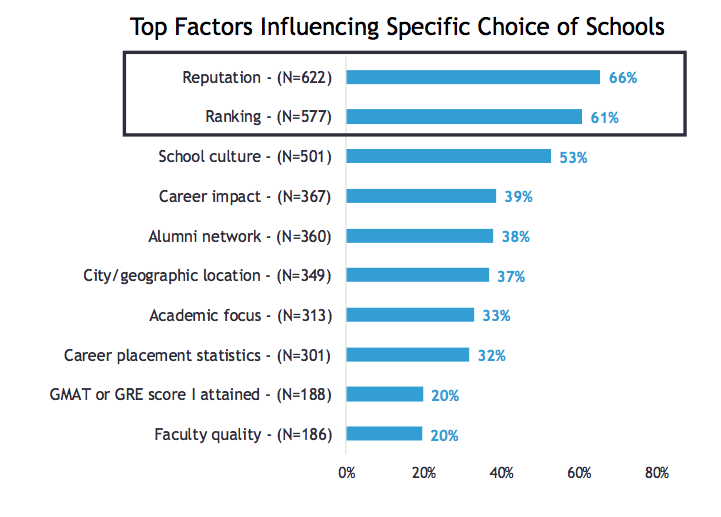 While it may be a long bow to draw, MBA programs are often like hotels. For example, it is not enough for a hotel to simply provide beds; it also must provide a certain level of comfort and service to make guests feel welcome. The same can be said of an MBA program – students are looking for more than just an in-and-out education experience with cold classrooms and piles of textbooks.
While it may be a long bow to draw, MBA programs are often like hotels. For example, it is not enough for a hotel to simply provide beds; it also must provide a certain level of comfort and service to make guests feel welcome. The same can be said of an MBA program – students are looking for more than just an in-and-out education experience with cold classrooms and piles of textbooks.
That was the major takeaway from the recent 2018 MBA Applicant Survey released by the Association of International Graduate Admissions Consultants (AIGAC). The survey compiled data from 1,979 interviewees, 1,377 of which had applied to at least one MBA program in the past month.
Candidates expect schools to get to know them better
According to the survey, MBA applicants are eager to being their studies, but these days expect more from their business schools. Prestige and stature can no longer justify keeping applicants at arm’s length, and future students have begun to expect their prospective business school to be alongside them on their MBA journey.
It’s not that MBA applicants expect to be spoon-fed, but the need is growing for schools to get to know their students better.
In their survey one, interviewee said, “I felt absolutely no effort was made to get to know me outside of my paper application and that without using a consultant of some kind I effectively had little chance of succeeding…”
Another stated, “though I fell in love with [school] during my campus visit, I felt that their application process was very impersonal, and I didn’t feel like I had enough of an opportunity to show the school who I was …”
Candidates expect to kept in the loop
MBA applicants are also calling even louder for status updates throughout the application process.
It was the sentiment of many who participated in the survey that when applying to business school to study an MBA, it was very stressful to not know where one stood.
“I think [School]’s inability to keep applicants updated on the status of their admissions process is suggestive of the greater culture, regardless of the collaborative and inclusive culture they claim to promote.”
Even top notch business schools need to be wary of a bad first impression
The survey suggested that while MBA programs symbolise a higher level of education and appreciation for business success, it was important that business schools take care not to float too high off the ground.
“I am an enlisted soldier, and come from a humble background,” one interviewee said, “I was not impressed with the elitism of most of the students in the top MBA programs I visited. This convinced me not to apply to some of the programs I originally planned to pursue.”
Why people want to pursue an MBA
Those who participated in AIGAC’s survey hailed from a number of different industries, including accounting, technology, nonprofit, healthcare, real estate and construction. The greatest motivator for studying an MBA was self-development and to achieve future success.
More than half of those surveyed said they chose to pursue an MBA to acquire new information and skills, while 49% wanted an MBA to change careers and 48% wanted access to strong professional networks and career advancement. Interestingly, the gap between inward and outward benefits was minimal, with 38% wanting an MBA to help increase their salary, but 35% wanted an MBA to make positive changes in society.
How a business school is chosen
Business school in the future will need to focus on how to earn and maintain a positive reputation and what goes into earning a high position on MBA rankings. According to the survey, at 66% and 61% respectively, those were the main factors influencing an MBA applicant’s choice of schools.












